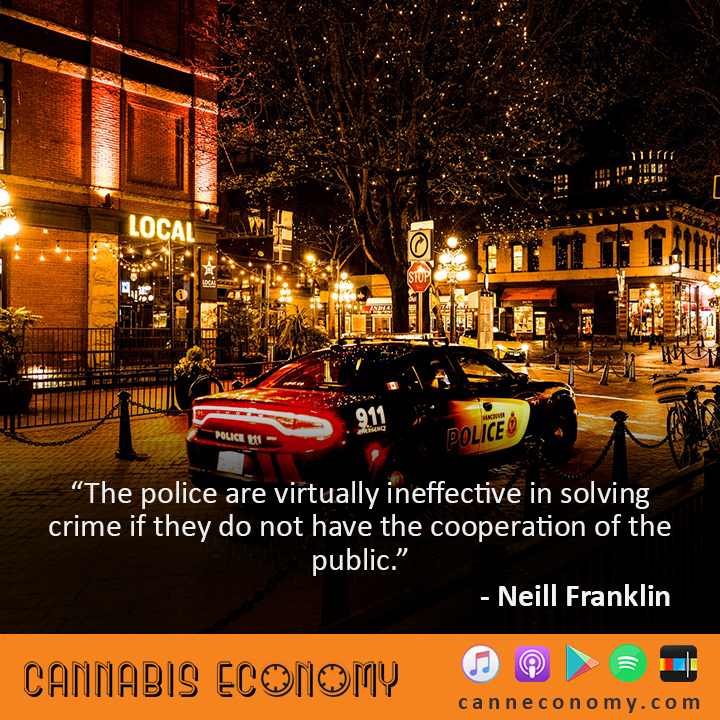
Ep. 467: Neill Franklin, LEAP
September 5, 2019Neill Franklin, of the Law Enforcement Action Partnership (LEAP), talks with us about policy and policing. Franklin believes that the criminal justice system is largely based on “creating evil so then we can have all these good guys to go fight it”, which needs to change. Franklin walks us through the nine Peelian Principles – the guidelines under which the police force must operate – in order to explore the best and safest ways to legislate and regulate cannabis. He believes that one of the best ways to prevent crime is simply by giving people the proper tools and the right information.
Transcript:
Seth Adler: Neill Franklin returns. Welcome to Cannabis Economy. I'm your host, Seth Adler. Download episodes on canneconomy.com, that's two N's in the word economy, or wherever you currently get your podcasts.
Seth Adler: Over at canneconomy.com, in addition to the direct insight that we get from policy, business, and science, we have added 2018 updates on research for qualifying conditions and cannabis. This is to supplement the National Academies of Engineering, Science, and Medicine's report from 2017, so chronic pain, cancer, weight control, IBS, those are all up to supplement, again, that National Academies research from 2017 and back. This is just for 2018.
Seth Adler: Check that out. First, a word from MedMen, and then Neill Franklin.
Seth Adler: MedMen is the most recognizable cannabis retailer in the US, with operations across the country and flagship stores in Los Angeles, Las Vegas, and New York.
Seth Adler: Recently, MedMen entered Florida for the first time, the third largest medical cannabis market, where the company is licensed for 35 total stores. It's all part of MedMen's impressive footprint, which currently spans 86 licenses, including pending acquisitions.
Seth Adler: Learn more about how MedMen is creating a safer, happier, and healthier world at medmen.com.
Seth Adler: All right. We've got Major Neill Franklin once again. Neill, it's always a pleasure, and thank you so much for giving us some time.
Neill Franklin: It's my pleasure. Thanks, Seth.
Seth Adler: All right. We're talking policy, we're talking business, we're talking science. You're obviously in that policy piece. For folks that are in business, that are in science, that might not know you, do you mind just giving us a little bit of a background of the Maryland days and what you're doing now, to make sure we understand who's talking to us?
Neill Franklin: Sure, absolutely. Thirty-four years in Maryland policing, retired from the Maryland State Police. I spent most of that time in Criminal Investigation and Narcotics. Final two years, a head of training for the Maryland State Police. Then, I went to Baltimore city as a recruiter. Went there to head up their Training Division. Did that for four years, making some dramatic changes there.
Neill Franklin: Then, I went to the Maryland Transit for six more years of policing. My final six years, detective bureau chief of patrol, and now the executive director of the Law Enforcement Action Partnership, which is a collection of prosecutors, judges, police officers, corrections officials, all working on reforming, improving our criminal justice system. For the most part, we're really working on abolishing it and building a new one, but one step at a time.
Read the full transcript:
Become a member to access to webinars, quarterly reports, contributor columns, shows, excerpts, and complete podcast transcripts
